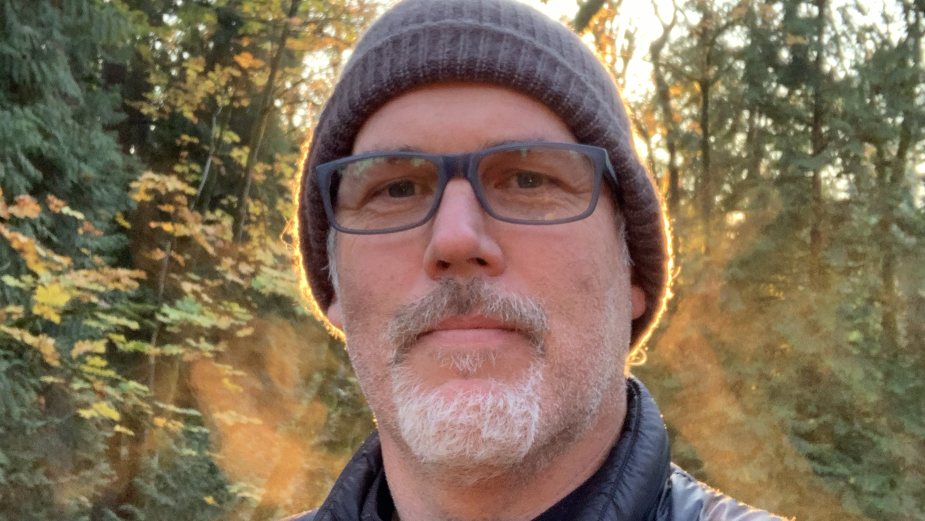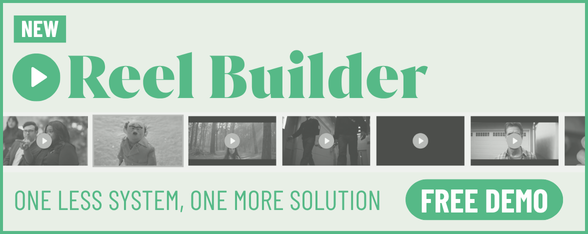
Meet Your Makers: Shaping Order Out of Chaos with John Beveridge

John Beveridge is the executive producer for HB Films. John has over twenty of experience in the field. He has worked in almost every capacity of digital content production as a line producer, agency producer, and post producer with a broad list of clients throughout the industry both nationally and internationally, including Nike, W+K, 72 and Sunny, DDB, BMW, Adidas, GSDM, BBDO, Subway, and many others. As the executive producer for The Hoffmans, that broad base of skills allows him to move seamlessly between the facets of production, with an eye toward making extraordinary creative and focused work under tight deadlines and budgets.
LBB> What first attracted you to production - and has it been an industry you’ve always worked on, or did you come to it from another area?
John> I was fortunate. As a kid, I loved stories. It’s something I carried with me into college, where I studied anthropology. Then, one summer, I had an opportunity to work in production. I immediately fell in love with the people, their expertise, and the foundation of mentorship.
LBB> What was your first role in the production world, and how did this experience influence how you think about production and how you grew your career?
John> I started as a PA. After that, my path was atypical. I went up the production chain, first as a coordinator, then supervisor, before falling in love with assistant directing. I found that I missed being on set. But more than that, I wanted to understand all the nuances of those sets and the craft around me.
LBB> How did you learn to be a producer?
John> I learned to be a producer by combining all the knowledge and skills I’d acquired from producing and being an assistant director world into something holistic. This allowed me to think creatively and out of the box because I could simultaneously assess the set and the budget. That proved to be a considerable advantage as a producer.
It’s also critical to mention that I had people who gave me great advice and insight into the industry, like Bill Coker, Chuck Sloan, Eric Saarinen, Mary Church, and Tim Newfang. I can’t overstate how crucial it is to have people pass their knowledge and experience onto you.
LBB> Looking back to the beginning of your career, can you tell us about a production you were involved in where you really had to dig deep, and that really helped you to grow as a producer?
John> Sometimes it’s taking a stand. We often have to deal with people who think they know what a live-action production really entails, but the truth is they don’t. There are meetings and brainstorms and ideas, but then there is the heavy lifting of going out and building a job and executing it. That’s the assessment that a good producer has to make. Are you helping, or are you in the way?
Here’s an example. We were on a large-scale production with complex choreography and camera moves. We had limited time, and we hadn’t yet gotten the shot, and you could feel the worry and fear in video village. In my experience, these moments can really undermine a job’s success. Where ego and worry just get in the way of production doing their job and the director pulling off the shot.
In this case, the creative lead was obsessing about the frame and camera move of the shot during rehearsal, causing the client and account team to get worked up. They started re-writing the scene before we’d even shot anything, which is just nuts, so I basically told everyone to knock it off. I had video village shut down and told the agency I was going out to set and that I’d come back when we had something we wanted to show. I let our AD know what was going on, and we ran rehearsal until we got it, recorded it, and when we were ready, we turned on the monitors and played it back. The agency was relieved and happy with what they saw. Drama averted, and lesson learned.
Managing fear can be such a big part of production, especially for projects with a high degree of technical difficulty. It’s up to the producer to cultivate the environment that will ultimately help the project succeed, which sometimes means creating boundaries and having uncomfortable conversations.
LBB> A good producer should be able to produce for any medium, from film to events to digital experience. Do you agree or disagree with this statement? Why/why not?
John> I agree. Good producing is about shaping order out of chaos. That’s a timeless skill set.
LBB> What’s your favourite thing about production and why?
John> The camaraderie. There’s a feeling of working in production that is hard to find elsewhere. Everyone is doing wildly different jobs while working towards the same goal. It’s a special feeling when you’re on a job, all the parts are clicking, and you know everyone is in it together.
LBB> How has production changed since you started your career?
John> Obviously, there have been massive technological changes in the industry. Those changes make content more accessible than ever, but there’s also a level of commoditization now that we previously didn’t have to contend with. That brings particular challenges, among them preserving the quality and creativity in our work despite the pressure to deliver the assets.
LBB> And what has stayed the same?
John> The creatives and visionaries. The people who ground their work in the idea that they are telling a story, and that story is the thing that connects us and moves us to action. Story is singularly crucial in commercial advertising. Much advertising feels like noise, but a great spot can make me consider buying a product. Good production and good creative are significantly important.
LBB> What do you think is the key to being an effective producer - and is it something that’s innate or something that can be learned?
John> Honestly, it’s both. There’s a phrase in the industry -- “Fake it til you make it.” But you can’t always get away with just that. You must have something innate; the ability to see something in the chaos. If you have that, you can learn, but it takes a lot of work. You have to put in the time to learn the craft of it. Great producers have done that.
LBB> Which production project from across your career are you most proud of and why?
John> We did a project at HB for the city of Los Angeles for its Olympic bid. The Hoffmans were the directors, and we ended up splitting them up and running two teams all over LA for three days. We coordinated our production with several of the City’s Municipal Departments and the Mayor’s Office to interview various celebrities, artists, and industry influencers. It was a massive logistical puzzle, and I had a blast. I think I slept for 24 hours straight after it was over.
LBB> And in terms of recent work, which projects have you found to be particularly exciting or have presented particularly interesting production challenges?
John> I’m particularly inspired by the marriage that is now happening between live-action and software. In particular, the ability to tie camera motion to the Unreal Engine on an LCD stage. It will open up so many new iterations of creativity in the field, and I can’t wait to see what people come up with.
LBB> Producers always have the best stories. What’s the hairiest / most insane situation you’ve found yourself in and how did you work your way out of it?
John> We were shooting on a proving ground/test track in Michigan during the summer and far out on the course. I’m not from the Midwest, so when the sky turned this crazy bruised colour, I thought we might just have to delay a bit. Then I saw the funnel cloud begin to form. It was one of those moments where we just loaded everyone up, left everything behind, and drove for the shelter. Our site rep was yelling at us to go as we checked people off the call sheet as they loaded into vans to ensure we didn’t leave someone. All the while, this thing is getting closer. It ended with an amazing martini night in the bar.
LBB> What are your personal ambitions or aspirations as a producer?
John> It’s always two-sided: to be on budget while finding avenues to improve the creative by giving the crew more opportunities to improve the work.
LBB> As a producer, your brain must have a neverending “to do” list. How do you switch off? What do you do to relax?
John> I play guitar, take my dogs for a walk, travel the world, and always make sure I have a great bourbon on hand.
LBB> Producers are problem solvers. What personally fuels your curiosity and drive?
John> That’s the thing about being a producer; it fuels itself. Solving the puzzle of a job is an amazing feeling, and every job is different. It’s like getting to open a new present every day.
LBB> What advice would you give to people who are interested in becoming a producer?
John> Many people want to be producers too soon. They want to go from being a PA to producing, and that’s different from how it should go. It’s essential to learn the craft and understand the why of things. Find someone to mentor you and ask questions but remember to observe. We are an industry of referring people. Always remember that when you’re on a job, you’re not just representing yourself, but the people who recommended you.
LBB> From your experience what are the ingredients for a successful production?
John> Pre-Production planning. Getting the departments to communicate and ensure everyone knows what the other departments are doing. It sets the stage for a great job and gets everyone invested.
LBB> What’s the key to a successful production-client relationship?
John> Listening. Agencies and Clients are facing their own hurdles on a job. If you are aware of those and able to communicate with your counterparts, you can often head off issues on set before they even occur.
LBB> One specifically for EPs: Producers are naturally hands-on, they have to be. How do you balance that in the more managerial role of an EP?
John> That was the most challenging transition for me personally. I knew I had to give our producers space to operate and do the job in their style, not get in the way. The handoff was that I mandated specific points of communication leading up and into a job so I wasn’t in the dark and could still affect the production if I needed to. It’s funny; producers have an amazing Spidey-Sense. It’s almost a superpower. I always tell our producers if something feels off, trust that and call me and talk through it. That one thing alone can save you a lot of headaches.













